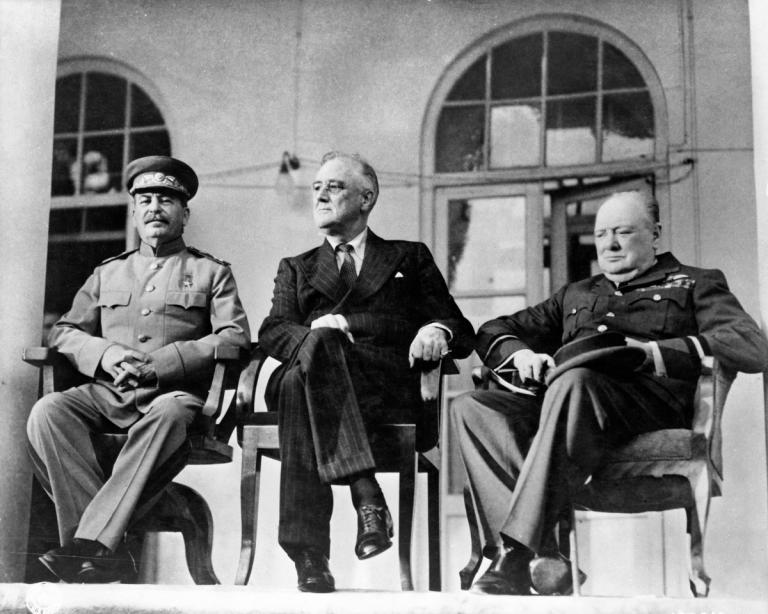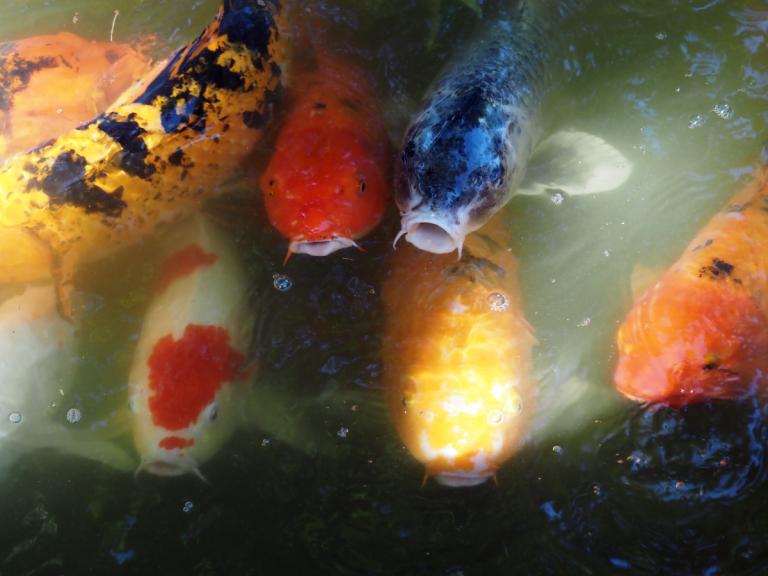Let me be blunt: some of y’all don’t know what an ally is, and that’s causing harm for you and for our efforts to build a better world.
An ally isn’t a friend or a family member. It’s not someone who supports you completely and unconditionally. An ally is someone you work with toward specific goals you share, even though you may disagree on other issues.
And right now we need all the allies we can get.
This is the fourth time I’ve shared Margaret Killjoy’s post-election essay that includes the line De-escalate all conflict that isn’t with the enemy. That’s an important idea, and it raises the question of who, exactly, is “the enemy.” And who isn’t.
I’ve also seen a meme going around that says:
If we don’t start distinguishing between who is an enemy and who is an imperfect ally, we aren’t going to survive.
“If you’re not with me you’re against me” may be biblical, but you don’t have to be a Pagan to know it’s a decidedly unhelpful way of approaching relations with people who don’t entirely agree with you.
I think much of this misunderstanding – especially in progressive circles – comes from straight people’s interactions with the LGBTQ community. Things like Pride look like fun, and we really do love our LGBTQ friends – we want to be part of the movement too. And so we say things like “I’m not gay, but I am an ally.” What we mean is “I don’t share the core identity of this movement but I still want to be a part of it.”
[Whether straight allies belong in LGBTQ spaces is a question for LGBTQ people to decide. Personally, I’ve gone into those spaces when I’ve been invited by one of my LGBTQ friends. When I haven’t been invited it hasn’t occurred to me to go. But that’s not the question we’re dealing with in this post.]
An ally isn’t someone who supports you unconditionally, and who you support unconditionally in return. That’s family, especially chosen family. An ally is someone who fights at your side against a common enemy.
Allies: the U.S. and Britain in World War II
American participation in World War I was late and its entry was less than enthusiastic. After the war there was a strong isolationist movement – Trump did not invent “America First.”
When World War II broke out in 1939, the U.S. remained officially neutral, though the Roosevelt administration did its best to support Britain against Nazi Germany. After Pearl Harbor, though, the U.S. entered the war as a full participant and made defeating Hitler its top priority.
The U.S. and Britain were – and still are – allies in the broadest sense of the term. The two countries have a shared heritage and a shared language. They’re both representative democracies. They’ve always been strong trading partners.
Sometimes our alliances look like the U.S. and Britain. We speak the same language, even if we pronounce some words differently.
Allies: the U.S. and the USSR in World War II
While the Communist movement had some popularity in the United States prior to World War II, few people – especially those in power – liked or trusted Joseph Stalin, particularly after he made a non-aggression pact with Hitler. But when Hitler broke that pact and invaded Russia, the USSR became an ally, in the classic sense of “my enemy’s enemy is my friend.”
Roosevelt, Churchill, and Stalin met in person twice, to coordinate plans for the war and afterwards. The U.S. (the “arsenal of democracy”) provided the USSR with a considerable amount of war materials. Hitler didn’t have the resources to fight a two-front war. The German army was weakened by its losses in Russia (at terrible cost to the Russian people) and made the 1944-45 invasion and victory in France and Germany possible.

And then it all fell apart after the war. The U.S. and the USSR fought proxy wars and a Cold War for half a century.
Was allying with the USSR the right thing to do? Of course it was. Defeating Hitler as quickly as possible was of utmost importance. Had he been able to conquer Russia, capture its resources, and then regroup, he could have ruled all of the European continent for years even if he wasn’t able to conquer Britain. And he would have murdered a lot more than 6 million people.
Sometime our alliances look like the U.S. and the USSR. We really don’t like each other and we may have to fight each other eventually, but for now our common enemy is an immediate and existential concern. And so we work together.
Stop trying to divide the world into “good people” and “enemies”
Enough of the history lesson. Here’s what matters now: most people are neither your ally nor your enemy. They don’t know you. They don’t care about you one way or another, except in some very high level “I’m supposed to love everybody and at least I try” sense.
Your enemies are the people who are actively trying to harm you and yours.
Let me be absolutely clear: you get to determine who is actively trying to harm you and who isn’t. And if you determine that someone is actively trying to harm you, you can and should cut them out of your life, no matter who they are or how closely you’re related to them.
But if you cut too many people out of your life, you’re going to be awfully lonely.
And if you isolate yourself from people who mean you no harm because you don’t see eye to eye with them on every issue – no matter how important an issue is – you may find yourself standing alone when you need help. More importantly to our topic here, you’ll limit the number of people who could be helping you fight your common enemies.
We can’t afford purity
At every election, I hear some people say “stop voting for the lesser evil!” And so – as with the recent Presidential election – the greater evil wins, and makes the country and the world a worse place for all of us.
Now, I’m all for getting better candidates. I’d love to ditch the two-party system (although the structure of American government makes that virtually impossible). But accelerationism is making things worse with no indication they’ll ever get better. That means voting for lesser evils to block greater evils. It means working with people who think your religion (or lack thereof) is “wrong” but who don’t attempt to stop you from practicing it. It means working with people whose culture is significantly different from your own.
Making things better incrementally often means getting your hands dirty. So be it.
And also, punch all Nazis
That doesn’t mean we should ignore harmful behaviors and ideologies.
Here’s a link a story I’ve seen on social media several times. It’s about a bartender who threw a punk out of his bar. The punk wasn’t doing anything, but he was wearing Nazi insignias. And the bartender knew that if he served him, the punk would come back with his Nazi friends, who would bring more Nazi friends, and eventually his bar would be a Nazi bar.
The terms “Nazi” and “fascist” get thrown around too easily these days. Most people who voted for Trump aren’t Nazis, and not everyone who voted for him is a fascist… although Trump himself is the textbook definition of a fascist: a rightwing, nationalistic, authoritarian dictator (or dictator-wannabe, at least so far).
But when people show you who they are, believe them the first time.
No frith with fascists.
Punch all Nazis.
A Pagan at an interfaith event
Before the pandemic, Denton used to have two services for the National Day of Prayer. One was held at noon on the town square. It was run by fundamentalists who limited speakers to those who shared their exclusivist views on religion and their radically conservative views on politics.
The second was held in the evening at a local church, and it included Methodists, Presbyterians, Lutherans, Catholics, Jews, Buddhists, Muslims, Pagans, and others. I gave the Pagan prayer on two occasions.
We did not agree on theology. The Catholics had one view on abortion – most of the rest of us had a different view. We had widely different views on immigration, especially on the best way to help vulnerable people. But we came together to support our country and to promote a spirit of understanding and cooperation.
It goes beyond one prayer service a year. We work together where we can, and we treat each other with dignity and respect where we can’t.
We are not all the same – there’s a very good reason why we don’t worship together. But we are allies in the battle against our common enemy of religious intolerance and political authoritarianism, and that’s a good thing.
Choose your allies strategically
The Right accepts allies where ever they can find them. Baptists may think Catholics are Pagans (speaking as a Pagan, I assure you they aren’t) and Catholics may think Mormons are heretics, but that doesn’t stop them from working together to end reproductive rights and harass LGBTQ people.
The Left is more demanding. The idea of the Democratic Party as a “big tent” is long gone, and too many of us demand complete agreement before we’ll even speak to someone else.
If someone isn’t actively harming you, and they’re moving in your general direction, then make them your ally. You don’t have to like them. You don’t have to agree with them on every point – nor should you. You may realize that at some point, you’re going to be on opposite sides.
But If we don’t start distinguishing between who is an enemy and who is an imperfect ally, we aren’t going to survive.

















